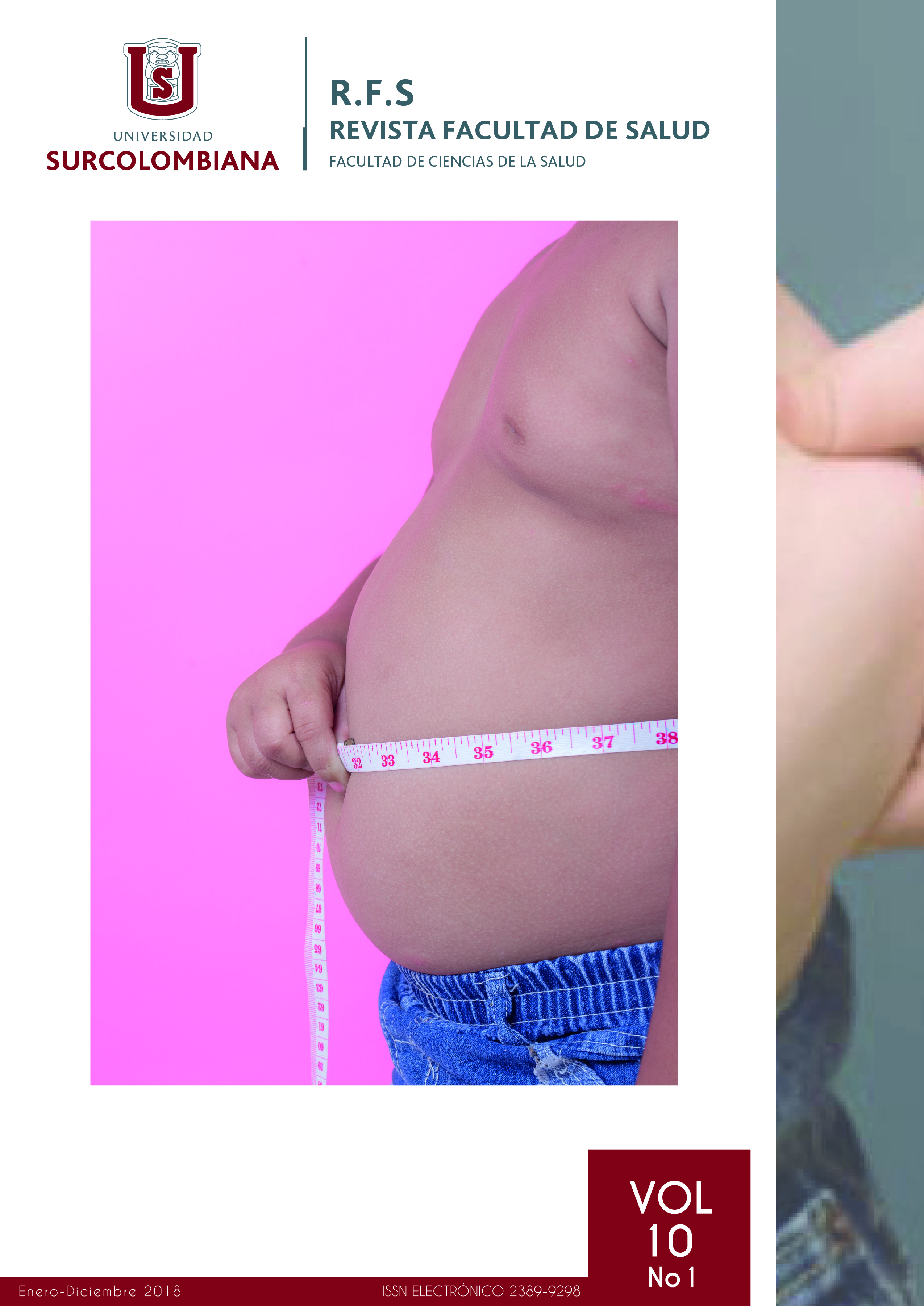Estilo de vida y adherencia al tratamiento de pacientes con diabetes mellitus tipo 2
##plugins.themes.bootstrap3.article.main##
Objective
To describe lifestyle and determine adherence to treatment of patients with type 2 diabetes mellitus through the application of IMEVID and Morisky-Green questionnaires in order to guide multidisciplinary intervention measures focused on health promotion and prevention of the illness.
Method
Cross-sectional study. Patients diagnosed with type 2 diabetes mellitus from a Health Service Provider Institution in Neiva (Huila) were given the IMEVID and Morisky-Green questionnaires to estimate factors influencing adherence to treatment.
Results
With regard to lifestyle, 47.14% (n = 33) of the subjects had a "favorable lifestyle", 34.29% (n = 24) "unfavorable lifestyle" and 18, 57% (n = 13) "unfavorable lifestyle" for the metabolic control of their disease. The overall proportion of patients with good adherence to pharmacological treatment was 71.43%.
Conclusions
In the studied population there is an important difference between the greater adherence to pharmacological management in comparison with the non-pharmacological management of their diabetes, if the lifestyle is the most influential determinant in health and at the same time the most modifiable, it is very It is necessary to investigate in depth the reasons why patients can adhere more easily to their pharmacological therapeutic scheme than to the improvement of their lifestyle, as well as implementing strategies to modify these results.





